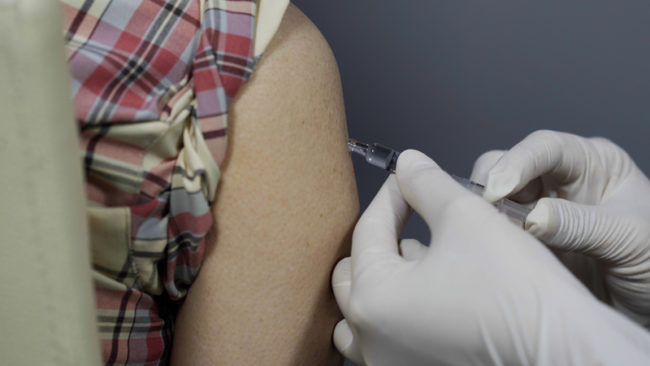
 There is no perfect way to distribute a life-saving therapy when the product is in short supply and initially has to be rationed. The question is how to do it in a manner that is rational and relatively equitable. This means that people who are essential workers in health care or other areas who are necessary to keep the economy afloat should be the first to be allotted the vaccine, particularly first-line health care workers. The next group to receive the vaccine should be those who are most at risk of being infected by Covid. This would include residents of nursing homes, older people and those with pre-existing conditions that make them more susceptible to the disease. Then the general public can be vaccinated in descending order of those who would seem to be most vulnerable. And among the general public, perhaps minorities who live in crowded conditions and are more likely to contract Covid and have a poor outcome should be given some type of preference.
There is no perfect way to distribute a life-saving therapy when the product is in short supply and initially has to be rationed. The question is how to do it in a manner that is rational and relatively equitable. This means that people who are essential workers in health care or other areas who are necessary to keep the economy afloat should be the first to be allotted the vaccine, particularly first-line health care workers. The next group to receive the vaccine should be those who are most at risk of being infected by Covid. This would include residents of nursing homes, older people and those with pre-existing conditions that make them more susceptible to the disease. Then the general public can be vaccinated in descending order of those who would seem to be most vulnerable. And among the general public, perhaps minorities who live in crowded conditions and are more likely to contract Covid and have a poor outcome should be given some type of preference.
While this pattern of distribution would appear to be most sensible, there are some questions that should be raised when there is not enough vaccine to immunize the entire population simultaneously. With the current guide for the sequence of vaccinating the American public, no consideration is being given to the recipient’s quality of life. In particular, should all residents of nursing homes be given preference in terms of vaccination? Should individuals with disseminated cancer whose life expectancy is six months or less be in the group that is vaccinated early? What about patients with Alzheimer’s disease or other severe dementias? Or people who have suffered severe strokes and are unable to speak and are paralyzed? Should they be vaccinated when the vaccine is still being rationed and many people are unable to obtain the protective shots?
I am not offering answers on how people with various conditions should be treated and who should be among the first to be vaccinated. I am just raising the question of whether quality of life should also be entered into the equation of who early vaccine recipients should be. Advanced directives in most cases would not cover treatment with Covid vaccine since it is a new development. When vaccine supplies are not universally available initially, does it make sense to give the vaccine to those whose quality of life is poor or whose life expectancy is limited?
Another question to be considered is whether people who refuse to be vaccinated and then become sick with Covid should be treated. Monoclonal antibody treatments are in short supply and should they be given to people who declined the protection of vaccination. ICU hospitalization and total treatment for Covid can be extremely expensive as well and should Medicare or private insurance pay for those who would not be vaccinated. Our health care costs are soaring as it is and if someone refuses vaccination does he or she deserve costly medical care?
Hospitals have Ethics Committees to ponder questions of ethical problems including different treatments for those patients whose conditions appear terminal or near terminal. While the availability of Covid vaccine remains limited, perhaps decisions need to be made by these Ethics Committees about which patients should receive initial doses of vaccine.
www.robertlevinebooks.com
Buy The Uninformed Voter on Amazon or Barnes and Noble
Photo 126587695 © Geargodz – Dreamstime.com
Posted at 09:19 AM in anti-vaxxers, Covid 19, Current Affairs, Disease Prevention, health care costs, pandemic, Politics, quality of life, vaccine | Permalink
Tags: anti-vaxxers, Covid 19, health care costs, quality of life, refusal of vaccine, treatment of Covid, vaccination
Political junkie, Vietnam vet, neurologist- three books on aging and dementia. Book on health care reform in 2009- Shock Therapy for the American Health Care System. Book on the need for a centrist third party- Resurrecting Democracy- A Citizen’s Call for a Centrist Third Party published in 2011. Aging Wisely, published in August 2014 by Rowman and Littlefield. Latest book- The Uninformed Voter published May 2020
















